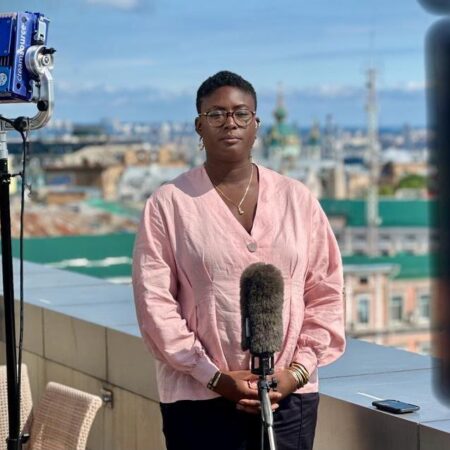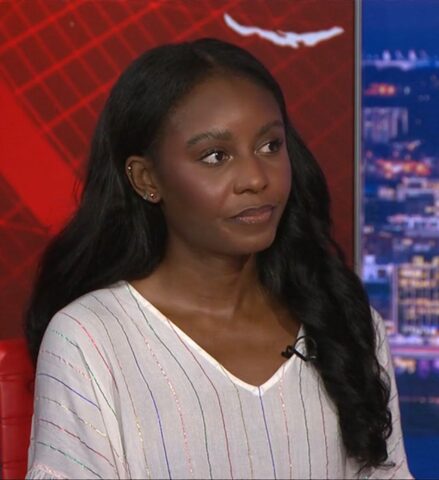Programs Policy in Context Africas Cost of Living Crisis
Details
- Date:
Sep 06, 2023 - End Date:
Sep 06, 2023 - Time:
12:00 PM - 1:30 PM - Location:
How do governments deal with rising unemployment and the increasing scarcity of daily necessities?
Virtual Program
Wednesday, September 6, 2023 | 12:00PM – 1:30PM ET
Tickets are free but registration is required in order to receive the Zoom link.
Join us for the next installment in our Policy in Context Series, which will focus on the confluence of factors that have resulted in an increasingly worrisome cost of living crisis across much of sub-saharan Africa. According to the IMF, food and energy costs account for the bulk of rising inflation in sub-Saharan Africa, due in part to disruptions to supply chains caused by the outbreak of war in Ukraine, weakened currencies, and unsustainable public debt servicing obligations. These issues, exacerbated by a sluggish recovery from COVID-19 lockdowns and climate factors have contributed to increased rates of financial and social insecurity particularly among youth, women, and vulnerable populations. Uzochukwu Alutu, Mayeni Jones, and Immaculata Abba will lend their expertise to helping us understand what individual or household expenditures factor into cost of living estimates, and what kinds of policy interventions would most effectively ease the burden on citizens. Their conversation will be moderated by Temi Ibirogba of The Africa Center.
The discussion will examine how businesses and households are adapting to make ends meet, as well as the impact of present-day challenges on countries’ long term economic and social agendas. Panelists will also reflect on complex questions of sovereignty as it relates to African countries’ inability to decisively influence many of the factors contributing to this crisis. In a geopolitical order where the interests of African countries are of relatively little consequence to the biggest questions, how can governments make their critical food and energy systems less vulnerable to circumstances over which they are able to exert little influence?

MAYENI JONES
Mayeni Jones is a multilingual, multimedia journalist, currently working as the BBC’s West Africa Correspondent. Based in Lagos, she covers Nigerian and regional news for the BBC’s 489 million strong audience. Prior to moving to Nigeria she worked as presenter, reporter and producer for the BBC’s flagship African affairs program, Focus on Africa. She’s also presented several programs for the BBC, including Assignment and the BBC’s African investigations show, Africa Eye. In May 2019 she fronted a BBC Panorama investigation revealing how a controversial businessman stood to make billions of dollars from a suspicious energy deal in Senegal, uncovering secret payments made to the family of the President. Other stories she has covered include the aftermath of the Covid-19 pandemic and the war in Ukraine on African countries, Nigeria’s kidnapping crisis, the EndSARS anti-police brutality protests and the death of long-term Chadian leader Idris Déby.

UZOCHUKWU ALUTU
Mr. Uzochukwu Alutu is a passionate international development professional and practitioner with over 10 years of experience obtained from a diverse range of institutions, specializing in public financial management, fiscal policy reform, domestic revenue mobilization, debt sustainability, political economy, and development programming and impact measurement. Having earned both a Master of Public Administration in Economic Policy Management from Columbia University and a Master of Science in Applied Economics from the University of Strathclyde, Glasgow, alongside a Bachelor of Science in Economics and Statistics from the University of Benin. He has extensive experience in formulating operational plans, coordinating financing and knowledge engagements to support private sector involvement in achieving the SDGs, intensifying policy dialogue between governments, donors, and the private sector, strengthening fiscal frameworks, fiscal transparency, and adaptive service delivery systems, as well as in developing long-term fiscal planning strategies for governments.

IMMACULATA ABBA
Immaculata Abba is a Nigerian writer and artist whose work explores the history and manifestation of ideas that inform how Africans make a living, find belonging and create meaning in our lives. Her work has been screened, exhibited and published widely on platforms such as Le Temps (Switzerland), The Brooklyn Rail (USA), The Guardian (UK) and Jameel Arts Centre (UAE).
She was a 2021 journalism fellow with African Arguments, a 2021 artist grantee with the Black Art Joy project (UK), a 2022 writer-in-residence at the Library of Africa and the African Diaspora (Ghana), an architecture research fellow on the 2022 DOCOMOMO Shared Heritage Africa project and a 2023 participant of the New York Portfolio Review. She has an academic background in history, literature and cultural theory and degrees from Queen Mary University of London and University of Oxford.

TEMI IBIROGBA
Temi Ibirogba is an editor working with the Africa Center’s policy program. She holds a senior editorial role at the Republic Journal and a Master of Science degree from the London School of Economics and Political Science (LSE) in the Theory and History of International Relations. Before attending LSE, she received her Bachelor’s degree in Politics on an International Relations track from Newcastle University. She is interested writing and editing about political, economic and social issues in Nigeria and Africa and African creative culture. Before the Africa Center, she worked at the Pentagon’s Africa Center for Strategic Studies, the Center for International Policy’s Africa Program and the Firoz Lalji Research Centre for Africa at LSE.
